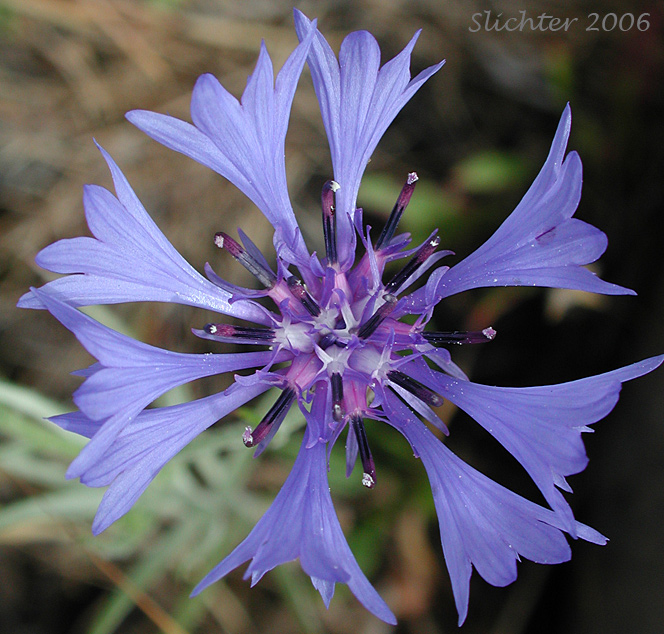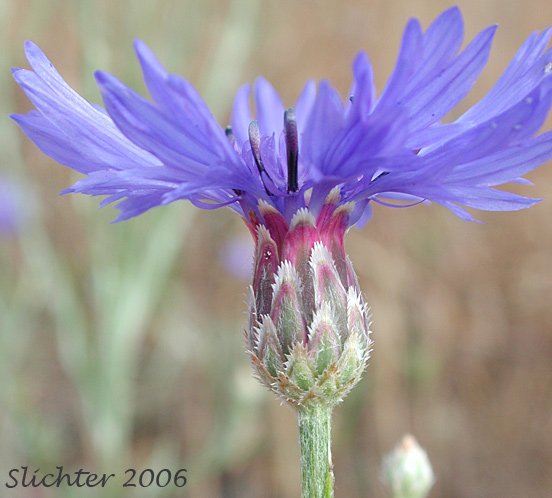[Knapweeds and Starthistles: The Genus Centaurea East of the Cascade Mountains of Oregon and Washington]
Bachelor's Button, Cornflower, Garden Cornflower
Centaurea cyanus
Synonym: Leucacantha cyanus

The photo above shows a close-up of the inflorescence of bachelor's
button. Note that the outermost ring of discoid flowers are much longer than
those toward the center of the head, and that they flare widely outward to make
a trumpet-like shape. Photographed at Catherine Creek, central Columbia River
Gorge............June 3, 2006.
Characteristics:
Bachelor's button is a showy annual or winter annual with weed-like
tendencies. The herbage is somewhat white-tomentose, especially when young.
The narrow leaves are usually linear in shape with entire margins, although
the lower leaves may have several narrow lobes. Individual leaves are up to
13 cm long and 1 cm wide.
The flower heads terminate the branches. The involucre is mostly
11-16 mm tall, with striate bracts with fringed tips. The flowers are usually
a dark blue, but may also be purple, pink, or white. The corollas are irregular.
Habitat:
Bachelor's button is a widely used ornamental plant which has
escaped into the wild. It may be found in disturbed places such as fields, waste
places, and roadsides.
Range:
Native to the Mediterranean region, bachelor's button is found
over much of the United States.
In the Columbia River Gorge, it is primarily found between the
west end of the gorge and The Dalles, OR between the elevations of 100'-1400'.

The photo above shows a close-up of the shingled
involucral bracts of bachelor's button. Note the sawtoothed edges to each of
the overlapping bracts. Viewed from the outside to the inside, the outer bracts
are by far the shortest, while each successive bract above it is increasingly
longer. Photographed at Catherine Creek, central Columbia River Gorge...........June
3, 2006.
Paul Slichter